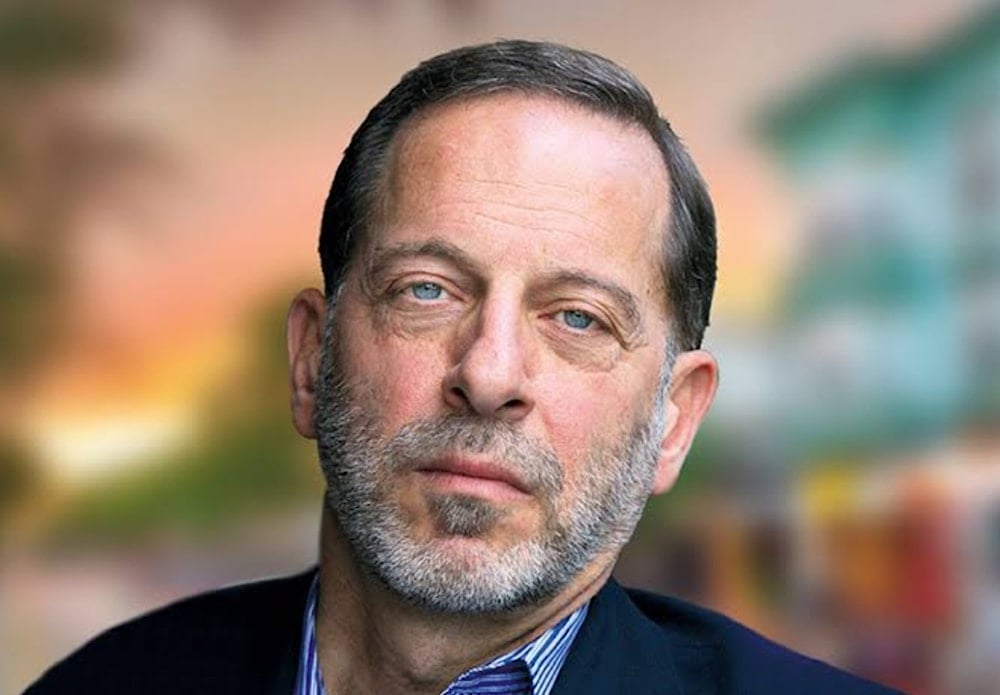Prof. Rashid Khalidi quits Columbia over pro-'Israel' crackdown deal
Professor Rashid Khalidi has withdrawn from teaching at Columbia University, condemning its $200 million deal with the Trump administration as a capitulation that enforces pro-"Israel" censorship and suppresses academic freedom on Palestine and Gaza.
-

Khalid Rashidi is an Edward Said Professor Emeritus of Modern Arab Studies. (columbia.edu)
Esteemed Palestinian-American historian Rashid Khalidi has pulled out of teaching at Columbia University this fall, denouncing the institution's decision to submit to the Trump administration's campaign to silence pro-Palestinian voices on campus.
In a powerful open letter published in The Guardian, Khalidi, Edward Said Professor Emeritus of Modern Arab Studies, condemned Columbia's recent $200 million settlement with the federal government, a deal he says strips the university of its integrity and hands over academic independence to a political agenda aimed at shielding "Israel" from criticism.
"Although I have retired, I was scheduled to teach a large lecture course on this topic in the fall as a 'special lecturer' but I cannot do so under the conditions Columbia has accepted by capitulating to the Trump administration in June," he wrote.
Capitulation Pact
The agreement, reached under the threat of lost federal funding, comes after months of student-led protests demanding an end to the genocide in Gaza and university divestment from institutions complicit in Israeli apartheid. Rather than defending free speech and academic inquiry, Columbia chose to comply with demands that reflect a broader campaign to criminalize solidarity with the Palestinian struggle.
Under the deal, Columbia is required to expand its Institute for Israel and Jewish Studies, submit its Middle East curriculum to external review, and dismantle programs deemed "unlawful" by the federal government. An independent monitor appointed by Washington will oversee implementation. On top of the $200 million settlement, the university will pay $21 million to the Equal Employment Opportunity Commission, following claims of alleged discrimination against Jewish employees.
Critics, including faculty, students, and human rights advocates, have described the agreement as a dangerous precedent: one that empowers the state to dictate how Palestine can be taught, discussed, or even mentioned on campus.
Silencing Dissent
In his letter, Khalidi warned of the chilling effect such measures will have on truth-telling about "Israel's" colonial violence. "Columbia chose to adopt a definition of antisemitism that 'conflates Jewishness with Israel, so that any criticism of Israel, or indeed description of Israeli policies, becomes a criticism of Jews'," he wrote.
He stressed that the settlement effectively outlaws honest scholarship about "Israel's" founding and its current atrocities in Gaza. "The fearsome apparatus that Columbia has erected [will] punish speech critical of Israel, and … crack down on alleged discrimination, which at this moment in history almost invariably amounts simply to opposition to this genocide."
Khalidi also denounced the intrusion of government oversight into academic spaces. "Agreeing to submit the syllabi and scholarship of prominent academics for review by outside actors is 'abhorrent'," he said.
Read more: Four CUNY professors fired over pro-Palestine advocacy: The Intercept
His letter ends with a stark assessment of what Columbia has become: "Columbia's capitulation has turned a university that was once a site of free inquiry and learning into a shadow of its former self, an anti-university, a place of fear and loathing, where faculty and students are told from on high what they can say and teach, under penalty of severe sanctions."
For many, Khalidi's stand reflects a growing crisis: as "Israel" intensifies its war on Gaza, academic institutions in the West are increasingly complicit in the silencing of Palestinian narratives and the repression of those who dare to speak against genocide.

 4 Min Read
4 Min Read











